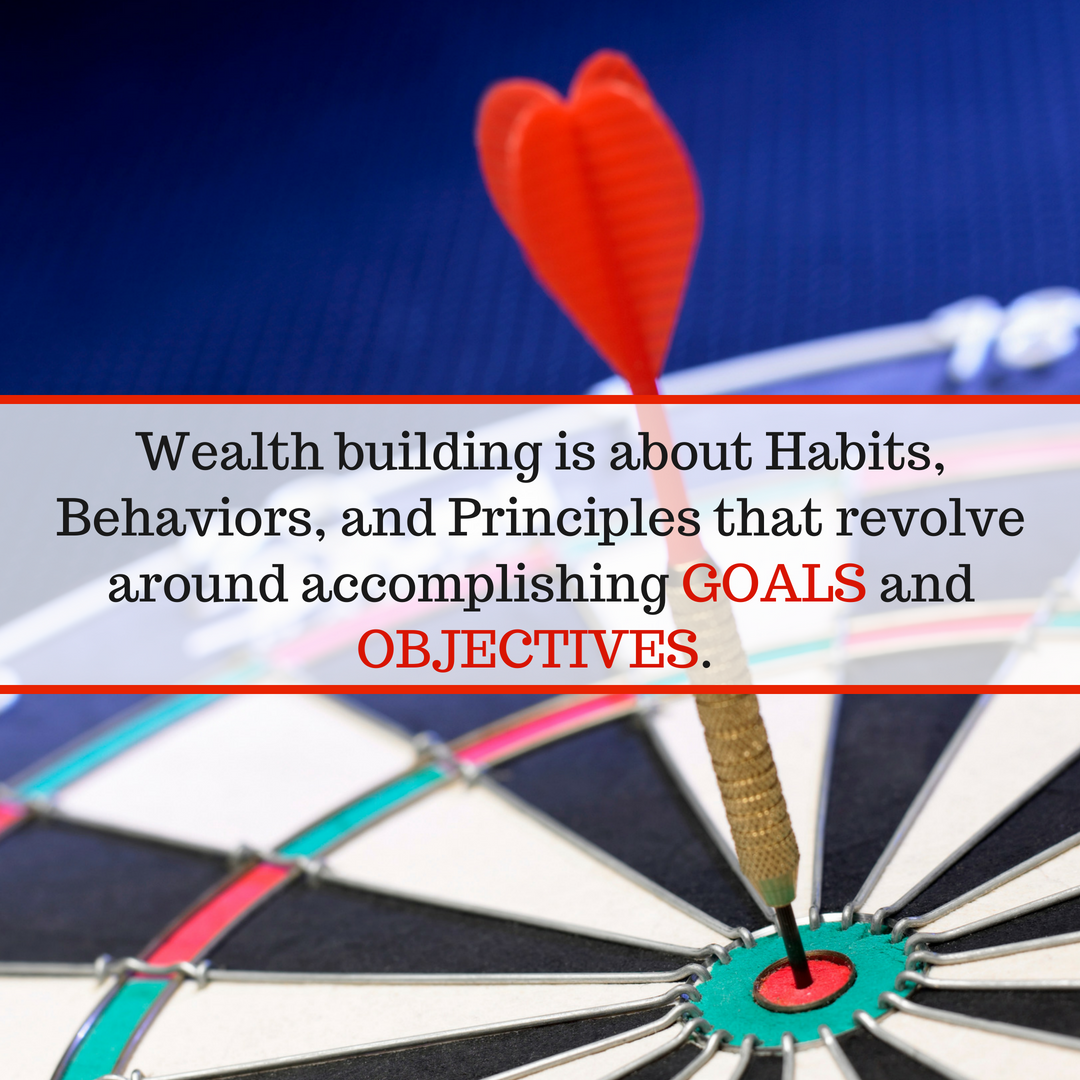
Financial planning, investments, and money can be quite complicated at times. There isn’t a single person on earth who fully understands every aspect of the U.S. Tax Code or even a small amount of every potential investment that exists in the real world.
But I’ve also found that having unlimited knowledge in regards to wealth isn’t the secret to building wealth. Wealth building is about habits, behaviors, and principles that revolve around accomplishing goals and objectives. Wealth building is about consistently making good decisions that are in alignment with what we really want to accomplish over our lifetimes.
If I ever start to get overwhelmed by the maze of information that is out there or the complicated options that exist, I step back, take a deep breath and just remember what I call “My 3 Big Wealth Goals” which are the following;
- Getting to 20X – The first big wealth goal is accumulating a pool of capital that will eventually sustain me indefinitely in the future when I choose to back off of working so much. The way I measure progress is the ratio of capital accumulated compared to annual earned income. I know that if a household can build capital up to and above 20 times their annual earned income, (if your income is $100,000 X 20 = 2,000,000) you should have an adequate pool of capital to work with as you ride into the sunset of your lives while enjoying life to the fullest. This makes wealth relative because your pool of capital required is contingent upon the lifestyle that YOU deem appropriate. A household that only needs $50k a year from investment income needs a much smaller pool of capital than a household that needs $400k a year. I call this “Getting to 20X” where “X” is the amount of annual income that you need to replace after you stop working. A good long term objective is to accumulate a pool of capital deducted towards retirement at 12 times your annual earnings and many people have accomplished levels of 12, 15, or even greater than 20 times their annual income in their retirement investments. Of course the more you have saved away, the more comfortable and secure your retirement. For example, if your household income is $100,000 X 12 = 1,200,000 you should have for retirement or $100,000 x 15 = 1,500,000 or $100,000 X 20 = 2,000,000.
- Building and maintaining adequate emergency funds. Life is full of “kicks to the groin.” Unexpected things happen to all of us. Cars break. Air conditioners wear out. Medical issues arise. Income is interrupted or inconsistent. That’s life. How prepared we are for those speed-bumps is what separates us. Most people live right on the edge where any tiny interruption can lead to financial chaos. I hate financial chaos. An example of a good initial goal for an emergency is to have one month’s worth of expenses saved away for a rainy day. As you progress and advance, you could build up that emergency fund to be able to cover three, six, or even more months’ worth of expenses for a rainy day.
- Elimination of debt. When we use debt to fund purchases, what we are doing is front-running future expected earnings. Sometimes this is still a good chance to take especially when it comes to reasonable education expenses (I said “reasonable”), buying our first home if we are confident that we will be living in the same location for years and years, or getting an automobile to take us to work. But after that, debt is usually just a breakdown in discipline because we are spending more than we are making. When we buy things with debt, we don’t own those things. Those things end up owning us and absolutely require us to do things like keep working because if we ever stopped, we’d lose all of the possessions we already bought in the past by using debt.
So if you are ever feeling overwhelmed in the complexities of planning or investing, just stop and ask yourself what you could do to improve your situation on accumulating capital (saving and investing prudently), building emergency funds (saving cash), and eliminating debt (living below our means).
I’ve had people come into my office completely frustrated because they couldn’t decide or figure out the differences between a ROTH, a traditional IRA, a SIMPLE-IRA, or a big list of options. Meanwhile I’ll notice that they have credit card debt and no emergency funds. It’s not the lack of knowledge on the IRS tax code that is holding them back in life. It’s their poor habits, behaviors, and principles that they are following that are keeping them broke.
I’ve never met a single wealth person who stated something like, “Oh, I became wealthy because I chose a traditional IRA over a ROTH IRA (or visa-versa).” That’s non-sense. They became wealthy because they lived their lives in a disciplined fashion that revolved around principles of success.
